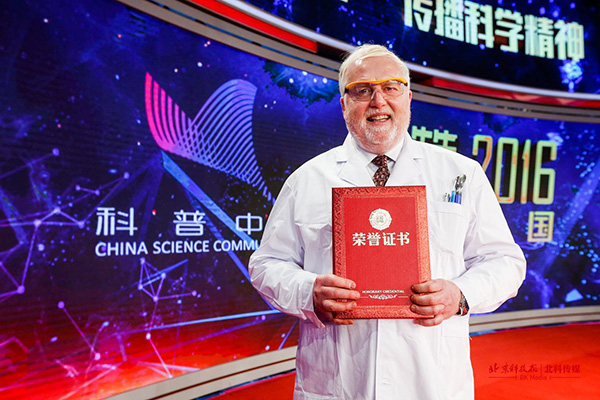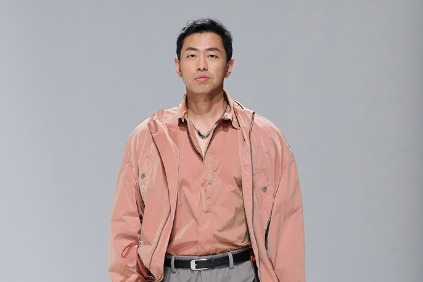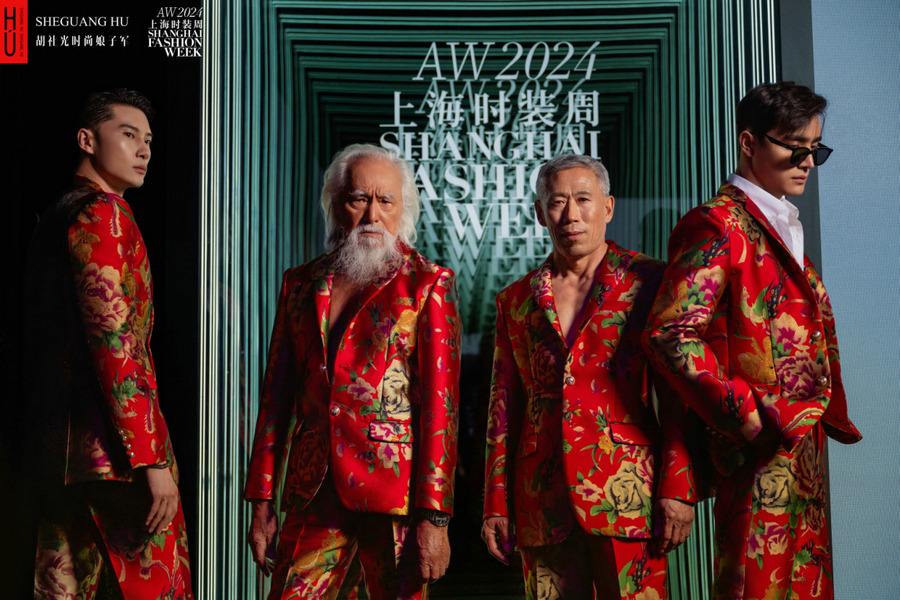A 'chemical reaction' with China


A British scientist has become an online star with short videos of experiments
British chemist David Evans has become an overnight celebrity on Chinese social media. His chemistry experiments have attracted over 2 million followers in just a few months.
Evans is a chemistry professor at the Beijing University of Chemical Technology. The 60-year-old always wears a white lab coat, a pair of safety goggles, and smiles often. Some web users say he looks just like the "grandpa of KFC".
Evans has posted videos of various experiments.
A bottle of liquid changes from yellow to red and then to green as he shakes it. Foam sprays from a flask and hits the ceiling after he mixes two liquids. He inhales a huge breath of helium from a balloon, and his voice sounds like Donald Duck's.
His most popular experiments have attracted millions of hits on video-sharing apps. Excited children's cheers and shouts can be heard in his videos.
"I hope my experiments can ignite people's interest in science," he says.
Evans has been interested in China since childhood. In the early 1970s, before the reform and opening-up, he viewed it as a "country full of mysteries". He subscribed to Beijing Review magazine to learn about China's political events, archaeological discoveries and cultural heritage.
"I wanted to learn more about China, just as I wanted to learn more about chemistry."
Evans did his undergraduate and postgraduate studies at Oxford University. He became a chemistry professor at the University of Exeter.
He first visited the Chinese mainland in 1987 to attend a chemistry conference in Nanjing, Jiangsu province.
The first Chinese phrase he learned wasn't nihao (hello) or xiexie (thanks) but meiyou ("don't have it"). Most parts of China were still poor. People struggled to get enough food. Even in cities, restaurants closed early and salespeople in shops generally replied to requests with "meiyou".
Evans was also surprised to find that TV advertisements were all about machines and factories, rather than daily commodities.
He began to learn Chinese and continued to visit the country. He witnessed huge changes over the years-the construction of high buildings, the proliferation of cars and an overall increase in wealth.
He quit his job in the United Kingdom and moved to Beijing in 1996.
Many of his friends thought he was crazy. But Evans says they just saw China's challenges but not its potential.
He worked as a teacher and researcher at BUCT.
He traveled to many cities. Friends invited him to their rural hometowns for Spring Festival. Villagers received him with warm generosity, despite their privations.
Evans wanted the research he participated in help bring Chinese people out of poverty. For instance, he and his Chinese colleagues designed a new additive for plastic film that can improve greenhouse insulation and reduce coal use.




































